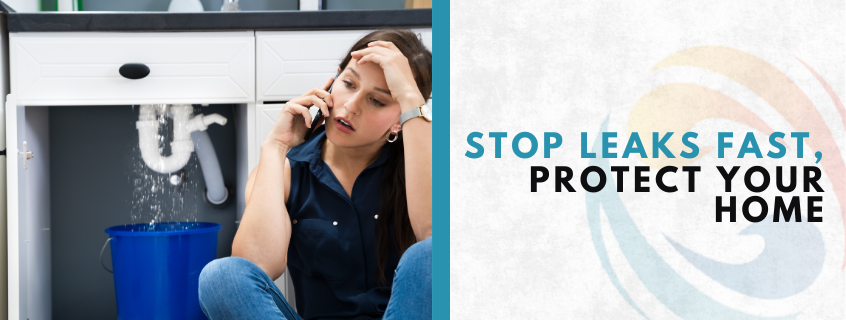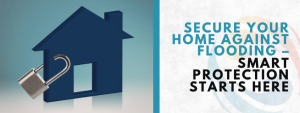Leaking pipes are a common problem for West Covina homeowners. Even a small drip can cause water damage, increase bills, and create mold issues if ignored. Knowing what to do when a pipe leaks is crucial to protecting your home. Quick action can prevent long-term damage and save money. In this guide, we’ll walk you through causes, preventive measures, immediate fixes, and professional help to ensure your plumbing stays safe and functional.
Common Causes of Pipe Leaks in West Covina
Understanding the common causes of pipe leaks helps homeowners prevent damage and respond quickly to plumbing issues.
1. Aging or Corroded Pipes
- Older pipes deteriorate, creating small cracks or holes.
- Metal pipes are especially prone to corrosion over time.
2. High Water Pressure
- Excess pressure weakens joints and fittings.
- Can cause sudden pipe bursts if left unchecked.
3. Temperature Fluctuations
- Freezing and thawing expand and contract pipes.
- Sudden temperature changes in West Covina can stress plumbing.
4. Blockages and Debris
- Hair, grease, or minerals can clog pipes.
- Blockages increase internal pressure, causing leaks.
5. Worn Fittings and Joints
- Loose or degraded fittings often leak first.
- Regular maintenance prevents serious damage.
Essential Steps to Keep Your Pipes Leak-Free
Preventing leaks before they occur is easier than repairing them. Here are the top steps to protect your home and minimize damage, including tips on how to dry out water damage quickly if a leak happens.
Inspection and Maintenance
- Regularly inspect all visible pipes for damp spots or corrosion.
- Schedule professional plumbing inspections annually in West Covina.
- Check under sinks and behind appliances for hidden moisture.
Controlling Water Pressure
- Install a pressure regulator if needed.
- Ensure water pressure stays between 40–80 psi.
Pipe Insulation and Drain Care
- Insulate exposed pipes in basements, attics, or exterior walls.
- Avoid pouring grease or fibrous material down drains.
- Use strainers to prevent debris from clogging pipes.
Immediate Steps to Take When a Pipe Leaks
If you notice a leak, knowing what to do when a pipe leaks is vital to minimize damage. First, shut off the main water supply to stop the flow. Next, turn off electricity in areas near water to prevent hazards. Use buckets or towels to contain dripping water. Temporary fixes like plumber’s tape or epoxy putty can help until a professional arrives. West Covina homeowners should always have a trusted local water damage repair company on call to handle emergencies quickly. Acting fast can reduce the risk of mold and structural damage.
Emergency Tools and Supplies
Having the right emergency tools and supplies ensures you can act quickly when a pipe leaks, minimizing water damage effectively.
Essential Tools for Quick Response
- Adjustable Wrench: Tighten loose connections immediately.
- Plumber’s Tape: Wrap minor cracks as a temporary fix.
- Pipe Clamps: Hold small leaks in place.
- Buckets and Towels: Contain water to prevent further damage.
- Epoxy Putty: Plug small holes until a professional repair is done.
Safety and Monitoring
- Turn off the electricity near leaks.
- Keep the area ventilated to help dry out water damage quickly.
- Monitor for signs of mold or floor warping while waiting for repairs.
Long-Term Solutions for West Covina Residents
Preventing recurring leaks requires proactive maintenance. Hire a licensed plumber to inspect and replace worn pipes and fittings regularly. Ensure all exposed pipes are insulated, especially in colder parts of West Covina homes. Avoid flushing inappropriate items like grease or fibrous materials down drains. If a leak causes significant water damage, use fast ways to stop pipe leaks and consider professional Water Damage Restoration West Covina to prevent mold. Routine maintenance helps extend the life of your plumbing system and keeps your home safe. Keeping a small emergency kit ready ensures you’re prepared if a leak occurs.
Advanced Leak Prevention Tools
Advanced leak prevention tools help homeowners detect, stop, and prevent pipe leaks before they cause serious damage.
Modern Tools and Techniques
- Leak Detectors: Alerts you when water flow is abnormal.
- Automatic Shutoff Valves: Stop leaks immediately.
- Pipe Insulation: Reduces stress from temperature changes.
- Regular Professional Checkups: Catch issues before they escalate.
- Moisture Sensors: Detect hidden leaks in walls or ceilings.
Preventive Measures
- Educate family members on what to do when a pipe leaks.
- Schedule annual plumbing maintenance in West Covina.
- Maintain safe water pressure with regulators.
- Use strainers to prevent drain blockages.
- Keep in contact with a trusted water damage repair company for emergencies.
FAQ: What to Do When a Pipe Leaks
Q1: Can I fix a pipe leak myself?
A1: Small leaks may be patched temporarily, but professional repair ensures long-term safety.
Q2: How do I dry out water damage fast?
A2: Use fans, towels, dehumidifiers, and ventilation to remove moisture quickly.
Q3: When should I call a plumber in West Covina?
A3: Call immediately if leaks persist, water pools, or you detect mold.
Q4: Are emergency kits necessary?
A4: Yes, having tools and supplies ready can prevent costly damage while waiting for professional help.
Q5: How can I prevent future pipe leaks in West Covina?
A5: Schedule regular plumbing inspections, maintain safe water pressure, insulate exposed pipes, and avoid flushing grease or debris down drains to reduce the risk of future leaks.



